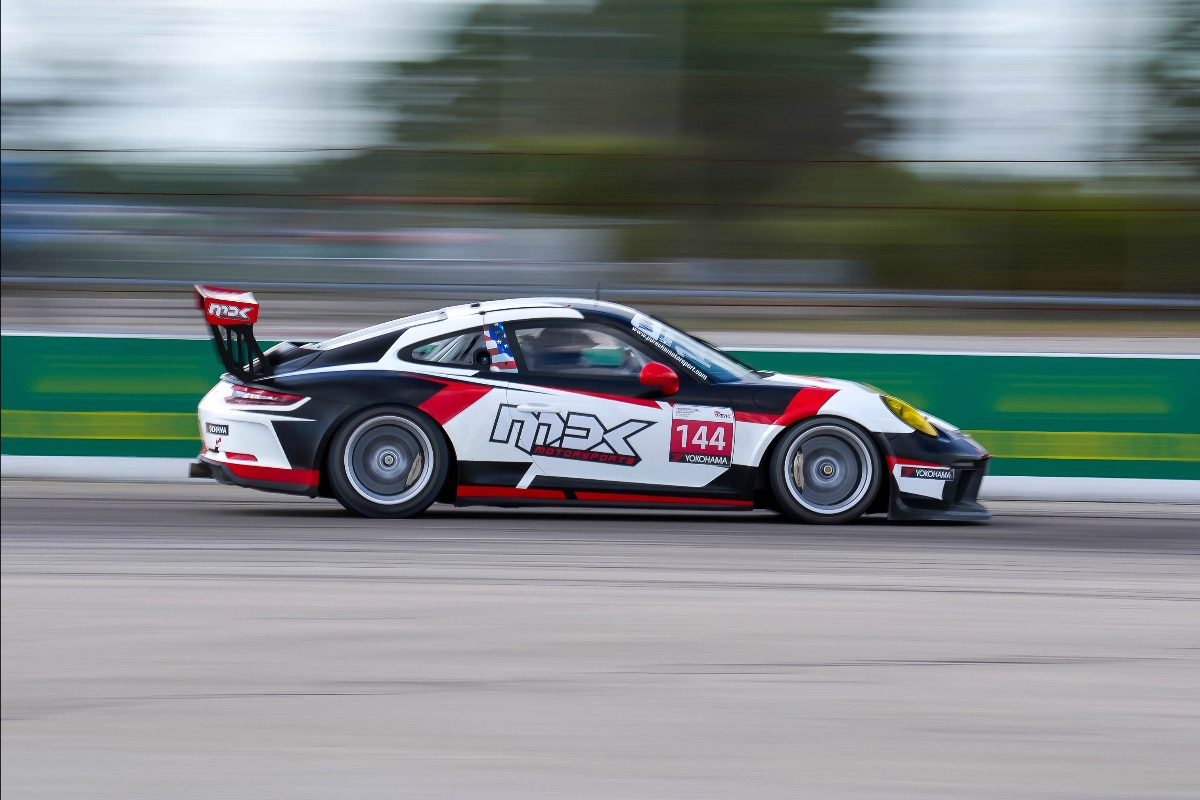
MDK Motorsports has launched a commitment to support research of the long-term effects of repetitive head impacts (RHI) in active and retired professional athletes through Cleveland Clinic Lou Ruvo Center for Brain Health’s Professional Athletes Brain Health Study (PABHS).
The largest study of professional athletes exposed to RHI, the PABHS is aimed at understanding the long-term effects of these impacts, including means to detect accumulating brain injury early and factors that put certain individuals at higher (or lower) risk of developing Chronic Traumatic Encephalopathy (CTE).
MDK Motorsports’ support, both financially and with the referral of its athletes to participate in the study, marks an expansion of the program to include professional motorsports drivers and riders, signaling an important initiative for the burgeoning sport.
Notably, the United States Auto Club (USAC) and Porsche Motorsport North America have also announced their support for the PABHS, underscoring the motorsports industry’s commitment to brain health.
The world of motorsports is experiencing rapid growth in the United States, and the effects of repetitive head impacts and gravitational forces on drivers, while not immediately apparent, can be significant.
Exposure to RHI or trauma increases the risk of long-term brain damage, including CTE. Current peer-reviewed research suggests that motorsports participants, especially in disciplines like motocross, may face a higher risk of concussion and brain injury.
Dr. Charles Bernick, a neurologist at the Lou Ruvo Center for Brain Health and primary investigator of the PABHS, expressed his enthusiasm about the addition of motorsports to the study, stating, “Our knowledge of concussion frequency in motorsports is limited, and there is a critical need to understand the long-term neurological effects of cumulative exposure to impacts and high velocity, high G forces that these athletes experience. The insights gained from motorsports have the potential to enhance long-term brain safety for professional drivers and athletes in other sports as well.”
While motorsports currently have concussion protocols in place, there are no existing studies on the prolonged effects of repetitive head contact on professional motorsports racers.

Megan Kvamme, CEO, MDK Motorsports:
“I am deeply honored to collaborate with Dr. Bernick on this significant research and education endeavor. Our mission at MDK Motorsports goes beyond the track; it’s about caring for our driver and rider athletes. This initiative isn’t just about addressing existing issues; it’s about proactive protection. I call upon the entire racing community to actively participate in this study. Together, we can gain invaluable insights into this critical issue and ensure the safety and well-being of our athletes today and for generations to come.”
Kevin Miller, President & CEO, United States Auto Club (USAC):
“We are excited to support this vital research and education initiative. Motorsports has always been about pushing the boundaries of performance, but it’s equally important to prioritize the well-being of our racers. Brain health is paramount, and this underscores our commitment to protecting the men and women who thrill us on the track.”
Volker Holzmeyer, President & CEO, Porsche Motorsport North America:
“Porsche is about learning from our experience on the racetrack and using that knowledge to improve our cars even further. For decades we have recognized the importance of physically and mentally fit drivers, and we are constantly looking for ways to educate. As a result, we are proud to support the work of the Professional Athletes Brain Health Study to further advance the cause.”
Jan Magnussen, former F1 driver and four-time winner at the 24 Hours of Le Mans:
“After spending years in the fast-paced world of racing, I’ve seen firsthand the effects of repetitive head contact. That’s why I fully support this important study. It’s not just about understanding the past but protecting the future, including racers like my son, Kevin, who’s making his mark in Formula One. Let’s ensure they have long and healthy careers in motorsports.”
©2025 MDK MOTORSPORTS | ALL RIGHTS RESERVED
TERMS OF USE | PRIVACY POLICY